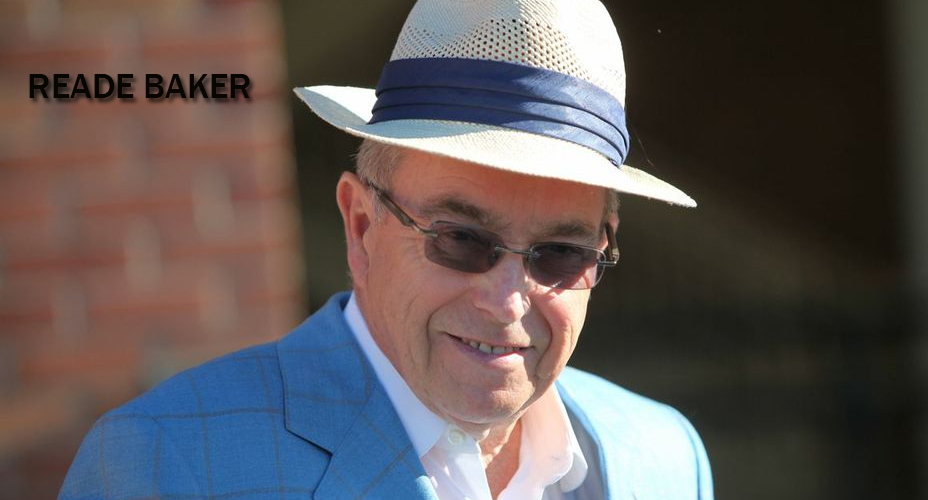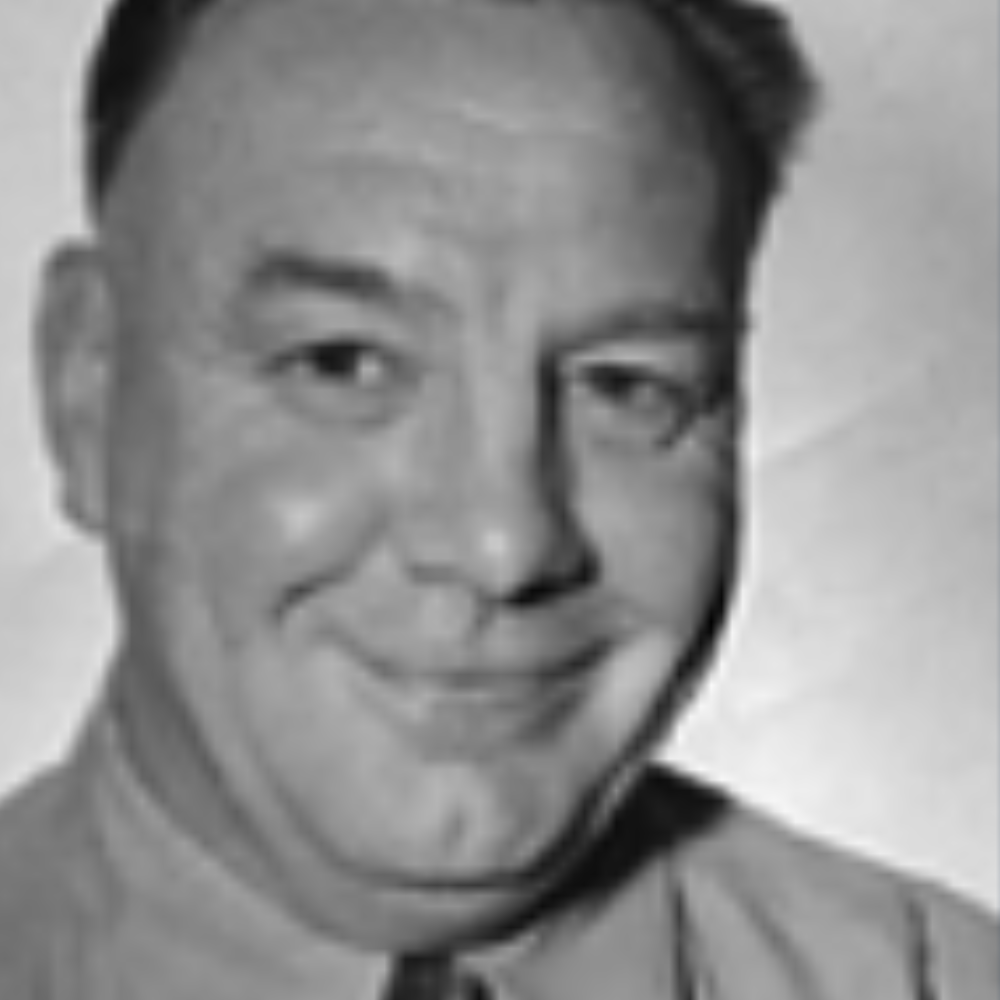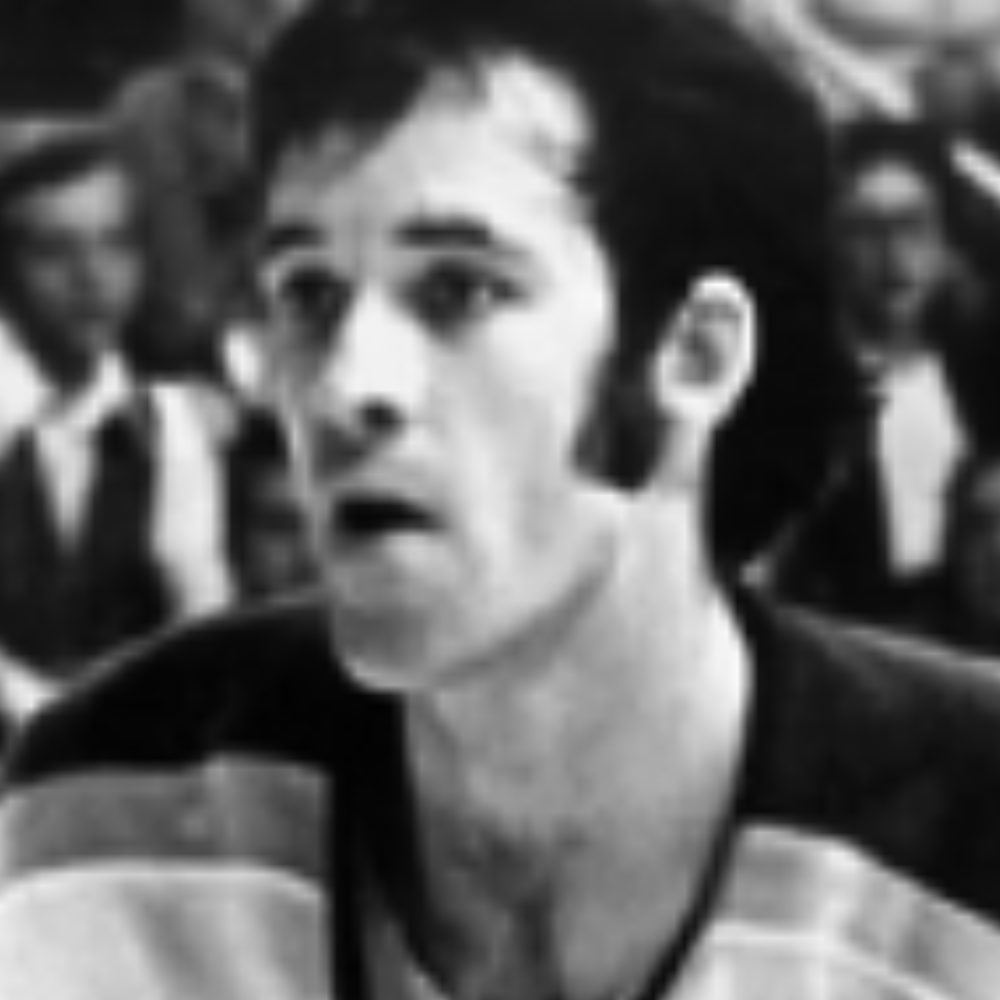Reade Baker
In the world of horse training, no one can match Reade Baker’s track record. “Some guyswill go on runs for a couple of years, but those guys tend to disappear,” Baker said recently at the Woodbine Club while watching the evening races. Baker is Woodbine’s top trainer in terms of purse earnings and stakes race winners. Over a decades-long career, his horses have started 6,060 races and finished atop the podium 2,617 times, including 968 wins. He has twice developed and trained Canada’s Horse of the Year – Fatal Bullet and Bear Now – and some of the most important owners in the game – including Frank Stronach, Jim and Susan Hill and former Kentucky governor Brereton C.Jones – entrust their horses to Baker’s stable.
“We just do all the little things well,” Baker said by way of explaining his consistent success. With his wife, Janis Maine, running the business end of the operation, Baker focuses on staying abreast of industry trends and the latest products and innovations in feeding and conditioning. He also chooses races strategically, only running horses where they have a strong chance of winning. His long career has taught Baker that, like every trainer, he will lose more races than he will win, but his strength lies in a keeping a strongstable of contenders. “Unless you’ve established a steady pattern to get clients and keep the barn filled, you’re going to go into the gully,” he said.
Baker enjoys the racing world because whether on a hot streak or mired ina slump, everyone knows about it. “We’re all exposed – everything you do,” he said. His Uncle Charles first took him to the track at Fort Erie, and young Reade was hooked. “We had horses at home (a dairy farm in Port Dalhousie), but they were workhorses,” Baker said. “These were shiny as silk, and prancing. They looked so good. And guys were all dressedup in suits – everybody used to get dressed up in those days. There was something really attractive about it.”
From that point on, Baker immersed himself in horse racing. He would pick up the previous day’s race results and imagine what it would be like to pick the winners. “You actually think that when you have eight dollars, you’re going to go bet on every winner. It’s not true, though,” he said, laughing. He became so enamoured with the track that his parents sent him to boarding school so he couldn’t sneak out at lunchtime and hitch a rideto see the horses.
When he turned 18 in 1965, Baker immediately headed for Fort Erie and became a swing groom for Pete (Gord) McCann, the trainer for Windfields Farm. “It was magnificent, because they were such big, noble beasts,” he said. “I guess I was just intrigued by these magnificent animals that you could be with all day. It was like heaven to me.” His career ended almost before it began when his first horse, Triple Crown winner Canebora, reared on his hind legs and nearly crushed the young groomer, who high-tailed it out of the stall.“I’d just had ponies and workhorses at home. I’d never seen anything like that,” Baker recalled. He happily worked from 5 a.m. to after the final race of the day, taking home $97 twice a month. However, after a year he switched to Conn Smythe’s stable for the princely sum of $65 per week. “That was big dough,” Baker chuckled. Smythe’s outfit made a lasting impression. “He wouldn¹t tolerate poor quality help or horses and everything was always spotless,” Baker said. “I try to model our barn after what he did.”
Seeking a new challenge, Baker became a galloper for first-year trainer Gil Rowntree andowner Jack Stafford. He enjoyed the chance to ride. “You learn the way horses travel. When they feel happy, when they don’t,” he said. “You’ve got this big, explosive animal that you’re now completely in control of.” A knee injury eventually forced him out of thestable. Looking for a way to stay in racing, he met jockey Gary Stahlbaum, who as luck would have it was looking for a new agent. “He liked the way I talked about racing or hisabilities or something like that, and he hired me,” said Baker, who set to work finding mounts for Stahlbaum to ride by brazenly talking up his jockey to trainers.
Stahlbaum matched Baker’s sales pitch with results, finishing as a top rider for six years and winning 17 stakes races. Baker was delighted – and a little shocked – when his jockey took six of six races in Fort Erie one day in 1976 despite having started the day so ill that Baker doubted Stahlbaum could even sit up on the horse. “And he rode six and won six. That was a big day,” Baker said.
As a racing manager for Rick Kennedy, Baker plotted the careers of such horses as Afleet, One From Heaven and Storm On The Loose. He traveled the world to glean tips about the strategies and techniques used by other trainers. “All your successes get associated with talented people and talented horses. Unless the talent gets into the equation, it doesn’t work,” he said. Some owners seek out Baker’s evaluation of various horses. The trick, he said, is discerning between what is merely an off night and what is a more permanent flaw. “Deciding what’s important and what’s not important is the key,”he explained. Just as importantly, Baker helps horse owners used to unfailing success in business understand that they won’t be on the podium after each race. “This is the great evener, this game,” he said.“It’ll level anybody.”
Baker said he is proud to have trained the horse of the year, but is equally proud of the underdog horses that he turned into winners. “Bear Now was a very talented horse, so was Fatal Bullet. Probably anybody could have trained them,” he said. “I thought we did some special things with some of the horses to make them better horses.”
Today, Reade and Janis own their own band of ten broodmares. Baker keeps busy by sitting on the Canadian Horse Racing Hall of Fame planning committee, supporting Woodbine’s Backstretch Chaplaincy program, and showing chickens and ducks at fall fairs around the province. The long-suffering Toronto Raptors fan also keeps up with the highs and lows of his favourite basketball team.
Baker sees Woodbine as an important source of revenue for government and a draw forEtobicoke residents. “It’s certainly a gathering place, and something that we’re very proud of. It’s one of the finest racetracks in North America,” he said.“A lot of people depend on it, a lot of jobs. It’s a major concern.” He only wishes more people realized what a gem they have just up the road. “You can go into my neighbourhood in Etobicoke,which is ten minutes away from here, and I’d say half the people on my street have never been to Woodbine,” he said. “I think we’d have a lot more fans if we found a way to lure them to the races once. A lot of them would get hooked.”
Almost 50 years later, the racetrack still has Baker hooked: “It’s my whole life. I come here seven days a week, 365 days a year. If I’m not going to Woodbine, I’m going to a place in Florida. If I didn’t have a job, I’d probably still drive to Woodbine. I don’t know any different.”










